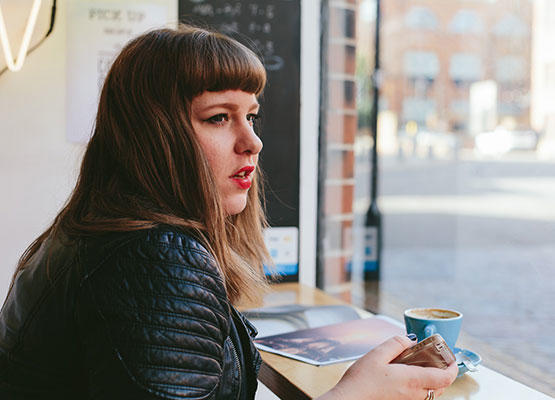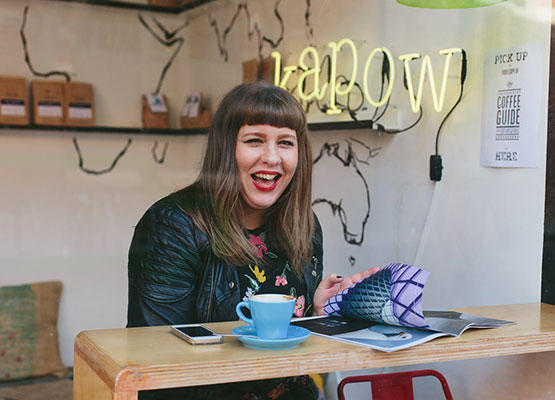- Home
- IPSE News
- Latest news
- Starting out as a freelancer
Starting out as a freelancer
- 1 Sep 2017

IPSE’s Tristan Grove speaks to award-winning freelance writer, PR professional and social media consultant Beverley Reinemann.
Since graduating in 2007, Beverley has been building up her profile as a freelancer, helping small businesses to use engaging copy and creative content to develop their brands and online presence. For the last six years, she has also been running her award-winning travel blog, ‘Pack your passport’.
Why is there so much advice out there for new freelancers, and should they follow it?
“I think the main reason is that while full-time employees often work in an office environment, where they can bounce ideas off their colleagues and get regular feedback, freelancers have to figure everything out for themselves.
“It’s also because although self-employment is nothing new, and many more people are choosing to work for themselves now, it’s still not the norm. There's no set path to take, and no ‘right’ way to be a freelancer. When I started, I read so many conflicting articles about what I should and shouldn't be doing, but what works for one person won't necessarily work for everyone else. It's all about finding what's best for you.”
What’s the best piece of advice you’ve had about freelancing, and have you followed it?
“The best piece of advice I've been given is this: you can't do it alone. Sure, you can do the work alone (in fact, you’ll do most of it alone), but you also need a network of freelancers around you.
“You need people who actually understand what it's like to work for yourself: the ‘feast/famine’ cycle, the clients that drive you up the wall, the loneliness that comes with working alone at home. With no colleagues to boost your morale or celebrate with at the end of a project, you need freelancer friends who can give you support, advice, encouragement, and who can go for a drink with you at the end of a tough week.
“Finding freelancer friends in the first place can be tough, so think about joining relevant Facebook groups and scouring meet-up sites for local events.”
What are the three questions you think every budding freelancer should ask themselves?
“1. Are you disciplined enough? To be a freelancer, you need to be self-motivated, able to work alone for long periods of time, and able to manage not only your time, but also your finances and a range of different projects.
“2. Do you have a strong professional network? I feel like the phrase ‘it's not what you know, but who you know’ was made for freelancing, because so often you end up finding work through former colleagues, other freelancers, and people in your professional network. That's not to say you can't go freelance without that network, but it definitely helps.
“3. Can you lower your overheads? Unless you’ve got financial support from someone, you’ll need to watch what you spend in the early stages of your freelance career. Keep your overheads as low as possible while you figure things out (and even after that). Sometimes, that might mean making sacrifices.”
Do you need to have worked full-time before you go freelance?
“Not necessarily, but if you’re looking to become a freelance designer, developer or marketing professional, a marketing agency background is definitely a big advantage. There are so many transferrable skills: for example, managing projects and budgets, pitching for new business, as well as working with and managing teams.”
Why did you personally decide to go freelance?

“I'd wanted to go freelance for years, and had been doing the odd bit of SEO copywriting for some travel brands in my spare time. But it wasn’t until I lost my full-time job in PR that I decided to really make a go of being self-employed. Having my regular salary taken away at a moment's notice was definitely the kick I needed to finally take freelancing full time.
“A lot of freelancers have just one niche, but I decided to work in a range of areas and offer social media, copywriting, and PR services. I love the variety that comes with that. One day I might be running a press event, the next I could be managing social media accounts or designing Instagram story graphics.”
Are there any sites or resources that have particularly helped you?
“The advice and support section of the IPSE site has been a huge help, of course, but I also love The Freelance Lifestyle's guides and courses and The Middle Finger Project's newsletter (it's always nice to get inspiration and motivation straight to your inbox).”
What’s the best working environment for a new freelancer?
“Honestly, I think anywhere you know you can get stuff done, which is different for everyone. I love having a dedicated work space in my flat, but sometimes when I'm sick of my own company I work from coffee shops or set up ‘work dates’ with other freelancers. Renting a desk in a co-working space is brilliant for recreating that ‘going to work’ feeling (and great for work/life balance), but you definitely have to consider the cost – especially when you're just starting out.”
What’s the best thing about freelancing? Is freelancing worth the risk?
“The best thing about freelancing, I think, is being able to go after projects you're genuinely interested in. Travel is a huge passion of mine and I know the industry well, so I'm always on the lookout for new travel clients. That said, when I first started out I definitely just took all the work I could get, and that's totally fine too.
“I also love being able to set my own work hours and the flexibility that comes with not working in a traditional office environment.
“Freelancing can feel like a massive risk, especially because of those quiet times when you're worried about making rent or paying bills, but I think it's definitely worth it.”
Meet the author

Tristan Grove
Head of Communications and Policy Engagement
